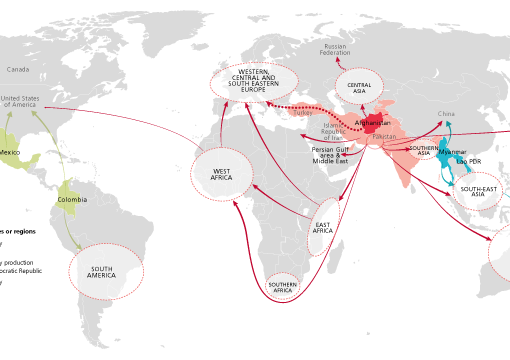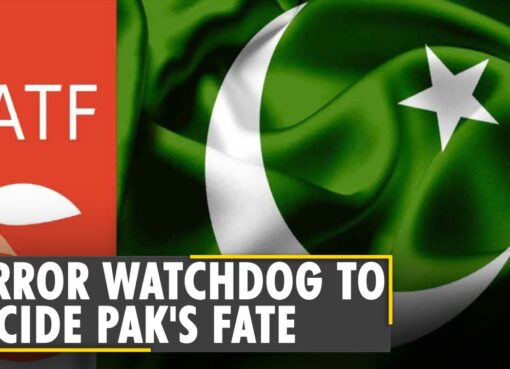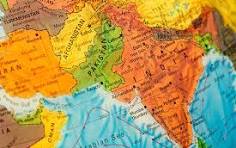By Malladi Rama Rao*
Funnily, even before the first ballot is cast in the Pakistan elections today, Bilawal Bhutto Zardari is ready with his prophecy. And that doesn’t bring smile to Nawaz Sharif, who is seen as the choice of the Army Chief Gen Asim Munir, for the hot seat in what has come to be known as “mother of all selections.”
“Nawaz Sharif won’t last six-months months,” declared the scion of the Bhutto- Zardari clan, while concluding his election campaign with a fiery speech in his hometown of Larkana.
Bilawal-speak on Feb 6, Tuesday evening, goes against forecasts from The New York Times, the high priest of American Democratic capitalism to The Guardian of London and Karachi’s very own sedate English daily, Dawn, which traces its roots to Mohammad Ali Jinnah, the constitutionalist -founder of Pakistan.
In a manner of speaking, the Bilawal forecast is a give-away to the despondency in the Pakistan People’s Party, (PPP), which gave two Prime Ministers – Zulfikar Ali Bhutto and Benazir Bhutto, and one President – Asif Ali Zardari over the past five decades.
Like always, the choice of the Pakistani electorate is made by the all-powerful Army.
For the record, however,128 million Pakistanis (69 million men and 59 million women) out of a population of 241 million are eligible to exercise their franchise at 90,582 polling booths for sending 266 lawmakers to the 336-member National Assembly (60 seats are reserved for women and 10 seats for non-Muslims).
Rigging has become a norm in election after election, making balloting a proforma exercise, notwithstanding this time around the presence of 5,121 candidates for Parliament and 12, 695 for the four provincial assemblies. In the fray are 192 political parties.
Democracy, as we know in the West or the East has not taken roots in Pakistan ever since it was carved out of British India in 1947 as the home for Muslims of the sub-continent.
No Prime Minister has been able to complete the 5-year tenure in the country’s 76-year history, which has been marred by political upheavals, economic crises, martial law and militancy.
Politicians of all hues who have made it big on the electoral turf are picks of the Khakis. Nawaz himself is a by-product of the military dictator Zia-ul Haq’s regime. When he deviated from the GHQ line, he was unseated in 1993, 1999 and 2017.
Even now, the Khakis do not appear to be fully behind Nawaz given his clamour for punishment of the military top brass that had sent him packing on corruption charges particularly in 2017.
Yet, for them, Nawaz is near term best to steer the country out of its economic mess, a legacy of Imran Khan, the playboy- cricketer turned blue-eyed boy of the establishment.
The one big plus for Nawaz is his loyal brother Shehbaz, who ensures that he remains in the good books of GHQ.
Imran Khan is cooling his heels behind the bars in as many as 100 plus cases. These range from Cipher-gate, which pushed Pak-US relations to the lowest ebb, to Toshakhana-gate, which was a euphemism for pocketing gifts presented by foreign dignitaries. His third marriage has been annulled and he and his wife have been sentenced.
His party, Pakistan Tehreek-e-Insaf, PTI, has lost its poll symbol, bat. It is barred from entering the poll fray. All because Imran has scripted his fall from grace.
Six years ago, he was ‘supported’ and ‘selected’ to win the 2018 election.
Now all doors are closed, more so since he keeps blaming the former army chief Gen Bajwa and the ISI chief for all his troubles.
Put simply, Imran ended up taking “potentially suicidal” decisions with his arrogance, `wayward and whimsical, and self-centric ways.
Well, Imran is still popular amongst the youth.
His cadres are in the fray as independents, particularly in the Khyber-Pakhtunkhwa (KP) province from where Nawaz is seeking his electoral fortunes.
In the worst-case scenario, if they make it to Parliament, in whatever numbers, the Army, like in the past, will create a King’s Party out of them, and make them align with Nawaz till he runs out of his luck. If they resist the pressure, they will meet the fate of their boss.
On his part, Nawaz will continue to face the threat of Damocles sword unless he checks his penchant to settle scores with his erstwhile tormentors – serving and retired Khakis.
This has injected an element of political uncertainty, and, has lent some respectability to Bilawal’s crystal gazing.
Left to himself, the PPP leader would like to see himself as the next Prime Minister of PPP-led government. He may become the Premier one day, not now. primarily because his own fault -lines.
Bilawal has built his electioneering as an outsider in the larger scheme of things. And targeted Nawaz as corrupt and dated, which did not go down well with the permanent establishment.
A leading Islamabad daily, Pakistan Today, has termed Bilawal’s fulminations against his former ally as “more a case of sour grapes rather than of an outraged principled position, because there are signs that the PPP feels it has not been rewarded in the way it should have been.”
So much so, if a PPP -PML N alliance becomes inevitable, Bilawal will have to settle for a ministerial berth while his father Asif Ali Zardari, who is adept at wheeling-and-dealing, may get elevated to the Presidency. He has not backed his son’s harsh rhetoric on Nawaz or his jibes at ‘selectors’ – those who meddle in the ‘selection’ of the prime minister.
This prognosis is based on two realities. One PPP has lost much base in its home turf – the Sindh province. Two, it is a marginal player in the crucial province of Punjab, where PML- N reigns supreme.
The Awami National Party (ANP) in KP is a pale shadow of its golden days, while another Pakhtun party, Pashtun Tahafuz Movement (PTM) is still not a force electorally.
Jamiat Ulema-i-Islam-Fazal (JUI-F) of Maulana Fazlur Rehman, and the Jamaat-i-Islami (JI) have limited shelf life in KP. Gwadar rights campaign has breathed some life into JI in Balochistan.
The Baloch nationalist parties are in no good shape either.
The Balochistan Awami Party (BAP) is aligned with the establishment. One of its factions has closed ranks with the Sharif party.
The Balochistan National Party (Mengal) and Pashtunkhwa Milli Awami Party (PKMAP) are neither here nor there though both have made big inroads with their campaign against missing persons, which, in essence, stands for people whisked away by the secret services.
And in the Sindh, the grand old Mohajir party, MQM, and the religious outfit, Tehreek-i-Labbaik Pakistan’s (TLP) have some electoral potential.
As pointed at the outset, Nawaz Sharif’s selection by the Army has a kind of TINA factor.
For both, turn around in the domestic scene is of paramount importance against the backdrop of booming militant guns and falling rupee value. So are the relations with neighbours – India, Afghanistan and Iran.
As Sharif told countless poll rallies, he is the only prime minister of Pakistan during whose tenure two Indian prime ministers Atal Bihari Vajpayee and Narendra Modi had visited Pakistan.
This is a signal Pakistan’s neighbourhood is keen to receive from Islamabad and Rawalpindi.
* The writer is a Delhi-based independent journalist and commentator.




